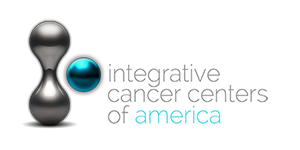Autism Spectrum Disorder and cells
Which cells are used to treat Autism Spectrum Disorder (ASD)
ProGenaCell cells are derived from human umbilical cord tissue. Umbilical cords are donated by mothers contemporaneous to a healthy birth. All umbilical cord-derived cells are screened for viruses and bacteria according to international blood bank standards.
Umbilical cord-derived cells allow our physicians to administer uniform doses and avoid harvesting cells from the patient, which, can especially difficult for children. Because they are collected right after (normal) birth, fresh umbilical cord-derived cells are much more potent than their "older" counterparts like fat-derived cells for instance. Cord tissue-derived mesenchymal cells pose no rejection risk because the body does not recognize them as foreign.
Our laboratory undertakes a very disciplined screening process to identify cells know to have the best anti-inflammatory activity, the best immune modulating capacity, and the best ability to stimulate regeneration."

What are the advantages of treating ASD with fresh umbilical cord tissue derived cells?
- Since mesenchymal cells are immune sy privileged, cellular rejection is not an issue and Human Leukocyte Antigen (HLA) matching is not necessary.
- The cells with the best anti-inflammatory activity, immune modulating capacity, and ability to stimulate regeneration can be screened and selected.
- Allogeneic cells can be administered multiple times over the course of days in uniform dosages that contain high cellular counts.
- Umbilical cord tissue provides an abundant supply of mesenchymal cells.
- No need to collect cells from the patient's hip bone or fat under anesthesia, which especially for small children and their parents, can be an unpleasant ordeal.
- There is substantial evidence showing that umbilical cord-derived neuronal cells are more robust than neuronal cells from other sources.
- No need to administer chemotherapy drugs like Granulocyte-colony stimulating factor (G-CSF or GCSF) to stimulate the bone marrow to produce granulocytes and cells and release them into the bloodstream.
ProGenaCell cells: Are they approved?
Fresh cord blood neuronal cells that were isolated and grown in our global laboratories to create master cellular banks are identical to cells currently used in the United States under US FDA regulation.
These cells serve as the starting material for cellular products used in MSC clinical trials for two Duchenne's muscular dystrophy patients under US FDA's designation of Investigational New Drug (IND) for single patient compassionate use. (IND 16026 DMD Single Patient).
Will The Patient Reject This Type of cellular?
The body's immune sy is unable to recognize cord blood cells as foreign and therefore not rejected. Cord blood cells have been administered thousands of times at ProGenaCell approved clinics with no rejection (graft vs. host disease). As a matter of fact, allogeneic (not the patient's own) mesenchymal cells similar to neuronal cells are approved to treat graft vs. host disease in Canada and New Zealand.
Cord blood cells also proliferate/differentiate more efficiently than "older" cells, such as those found in the fat and therefore, they are considered to be more "potent".
How Are The cells Administered For ASD Treatment?
The umbilical cord-derived cells are administered by trained physicians via intranasal and intravenous injection.
cellular Treatment: ASD Protocols
Treatment protocol will be assigned by staff physicians after the patient has submitted all requested medical information and received approval. A patient's recommended protocol may differ from the example given below.
- Treatment length (Monday – Friday): 5 Days.
- Physical examination and blood testing: Monday.
- Two infusions of cord blood cells: Tuesday and Wednesday
What about Patient Follow-Up?
Proper follow-up is an essential part of ASD palsy treatment process. Our primary goal is to ensure that your child is progressing safely. Regular follow-up also enables us to evaluate efficacy and improve our ASD treatment protocols based on patient reported outcomes.
Therefore, our medical staff will be contacting you after 1 month, 3 months, 6 months, and 1 year to monitor your child's progress.
Meet Luella, an ASD Patient
Start your treatment today!
Speak with a qualified ProGenaCell Representative today about the benefits of ProGenaCell Cell Therapy.
Contact Info
Working Time
-
Mon-Fri: 09:00 - 18:00
Saturday: 09:00 - 14:00
Sunday: Closed

